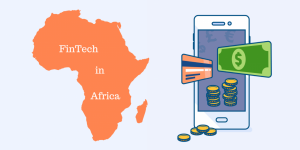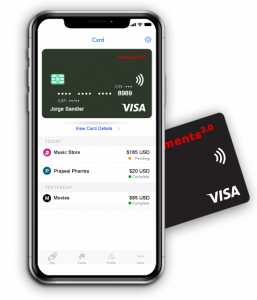Exploring The African Landscape - New Fin tech offer the greatest opportunities for banks, but cards are still key
Exploring The African Landscape - New Fin tech offer the greatest opportunities for banks, but cards are still key ... Here's Why We Think @ Payments2.0
Real-time payments are another area considered absolutely ripe with amazing potential, with 53% of banks viewing the ability to create new overlay products, such as instant P2P services or instant bill payments, on real-time rails as a top-three priority. Unsurprisingly, this trend was particularly strong in markets such as Nigeria and South Africa where there is a real-time infrastructure already in place.
Banks also see opportunities in forming partnerships with other banks and nonbank players, particularly in the new payment technology space. A number of banks in the region already have partnerships with telco companies, Equitel (Equity Bank and Airtel) in Kenya being just one example, while many also partner with international remittance specialists such as WorldRemit. However, there has been less collaboration with fintech startups, suggesting an area for future exploration... and this opportunity exists for real!
But while the future opportunities may lie in real-time payments and digital wallets, for now, plastic cards are still at the forefront of banks’ payment propositions. Banks report that consumer demand for payment cards typically outweighs that for other payment technologies such as mobile payments. For example, 32% of banks ranked debit cards first as the product most in demand by consumers, 23% selected credit cards, and just 9% selected mobile domestic P2P payments. There are exceptions, notably in East Africa, where demand for mobile bill payment products is on a par with demand for debit cards. However, for now, cards are still dominant but we believe this won't be the case for too long in the near future.
The continued strength of demand for payment cards is unsurprising. Banks are much more active in this space; merchant acceptance of cards in the formal economy is more wide- spread than mobile payments (unlike rural Africa), for example, and cards offer the ability to use ATMs. With the exception of Nigeria, the mobile payments space in most markets has been dominated by telco providers, and as a payment mechanism, mobile money is still considered to be favored more by younger consumers, with 80% of banks agreeing that younger consumers are more inclined to use mobile money than older demographics. Where banks are seeing most demand for mobile money is in the P2P transfer space, while mobile purchases are less important: just 4% of banks ranked mobile in-store purchases as the product most in demand by consumers, for instance.
Card payments are also important from a financial perspective for banks. Over 95% of banks across the region state that debit and credit card operations recorded profits exceeding or in line with the rest of the organization, while 11% of banks stated that mobile money was more likely to record lower-than- average profitability, indicating that some players are still seeking to understand how to best monetize the opportunities afforded by mobile payments. Other key areas from a profitability perspective include store card issuing and cross-border issuing, which 96% and 97% of banks respectively considered to exceed or be in line with the profits of the rest of the organization. The most challenging area was merchant acquiring for POS, which 15% of respondents across the region found to record below average profitability. This trend was particularly pronounced among West African banks with 23.1% of respondents citing below-average profits for this area, which is partly a reflection of high levels of competition driving costs down.
Similar to banks, merchants are keen to embrace technology and new payment methods. 72% of banks (rising to as many as 81% in West Africa) stated that appealing to the next generation of customers was extremely important in determining their payments strategies, and this will extend into wider improvements in the digital commerce experience. Keeping pace with new payment technologies was also key for merchants, with 54% stating this was extremely important to them. This is because offering more ways to pay increases incremental sales, and this aim typically lies at the heart of most merchants’ payment strategies. It is no surprise, therefore, that merchants are making tangible steps to improve the payment types that they accept, and while 65% of merchants already accept mobile money, 23% state they plan to add this option in the coming year.
Africa doesn’t have a robust broadband infrastructure, or continent-wide digital-rights laws and copyright regulations, so new startups with the right product offering and local flavor can rapidly become Fin tech leaders of Africa said Eli Hazan at Payments2.0
Why are we Exploring Africa now?
Africa’s chief attraction is that it has been growing while richer regions have stalled. As America, Europe and China age, Africa can expect a bulge of workers in their productive prime. the continent is emerging as having almost 30% of the world’s population. Though skills are in short supply, they are becoming more abundant. According to the McKinsey Global Institute, the consulting firm’s research unit, in 2002 only 32% of Africans had secondary or tertiary education, but by 2020, 48% will have. CHRISTINE LAGARDE MD OF THE IMF DESCRIBED THE RISE OF THE AFRICAN MARKET AS A “ONCE IN A GENERATION OPPORTUNITY”
Digital financial services are contributing to financial development and financial inclusion in Sub Saharan Africa. The rapid spread of systems such as M-Pesa in Kenya and other countries have helped reduce transaction costs and facilitate personal transactions, while contributing to the surge of financial intermediation services. With less need for cash for transactions, more economic agents are able to send and monitor financial market signals, contributing to the closing gap between financial inclusion and wealth creation pointed out Rohan F. Britto, Director International Development at Payments2.0
Rohan Francis Britto
Rijndlpay Technologies Pvt. Ltd
+971 55 635 0635
email us here
Legal Disclaimer:
EIN Presswire provides this news content "as is" without warranty of any kind. We do not accept any responsibility or liability for the accuracy, content, images, videos, licenses, completeness, legality, or reliability of the information contained in this article. If you have any complaints or copyright issues related to this article, kindly contact the author above.





